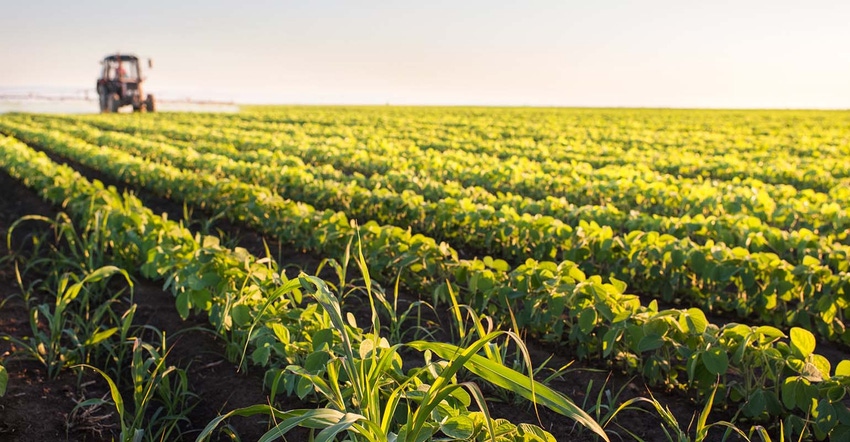
There are only a couple of weeks to go before farmers can begin planting this season across most of Brazil, and there’s still no word on whether they’ll be able to use glyphosate this season. As you likely know, earlier this month, a federal judge issued a ban on glyphosate until the safety of the product can be reevaluated as to whether it causes cancer.
An appeal to the decision was estimated by Brazilian Ag Minister Blairo Maggi to be made as early as Wednesday (Aug. 29,) but by Thursday afternoon, there was still no judicial decision to take up an emergency filing by the federal attorney general and the Parana (State) Agriculture Federation, Carlos Augusto Albuquerque, an aide to the Federation’s executive board, told me Thursday afternoon. The Brazilian justice system can be slow, he said, and decisions on the timing of hearing cases at any given time are made solely by the judge involved. The filing asked for speedy consideration of their move to stay the earlier judicial decision to stop any use of glyphosate and other compounds until they could be again proven safe by government authorities.
Edge of their seats
The leaves Brazilian farmers biting their nails on the question of whether it would be wise or not to plant RR seed when the rains start to return across a large swath of the country’s soybean production area in September or October. So stay tuned.
Putting in their two cents
Given that Ag Minister Maggi has said the stakes of planting the entire national crop without the use of glyphosate would make soybean production nearly unviable, the ag sector is feeling pressure. Last week, doctors of pharmacology and toxicology at a respected Brazilian university announced their recent study found no significant traces of glyphosate in the systems of farm workers they studied. Though Unicamp, the university in question, is in Sao Paulo state, professors looked at 90 urine samples from farm workers in Mato Grosso. Out of the 90 farm workers, only 11 showed measurable amounts of glyphosate in their samples, with none demonstrating what the country’s National Sanitary Vigilance Agency considers safe.
In fact the highest rate found was only one-fifth of that threshold, announced the researchers.
The university cautioned however that this effort should be considered a “pilot test,” and are looking forward to increasing the size of their sample of subjects.
The researcher added that “No studies show a causal relationship between being a farmer and getting cancer.”
Confusion reigns
The stakes are high while Brazilians wait. And the stakes are high. One respected research group estimated that the country’s soybean producers alone depended on glyphosate to the tune of more than 150 million gallons in 2015.
Meanwhile everybody bites nails to see what this means. One Monsanto official said that even if the federal court order were upheld in today’s scheduled hearing, the federal government would still have thirty days to begin acting on the order. And Ag Minister Maggi had to retract a tweet sent out last week in which he said the court order had already been reversed. So we wait while confusion reigns.
The opinions of the author are not necessarily those of Farm Futures or Farm Progress.
About the Author(s)
You May Also Like






